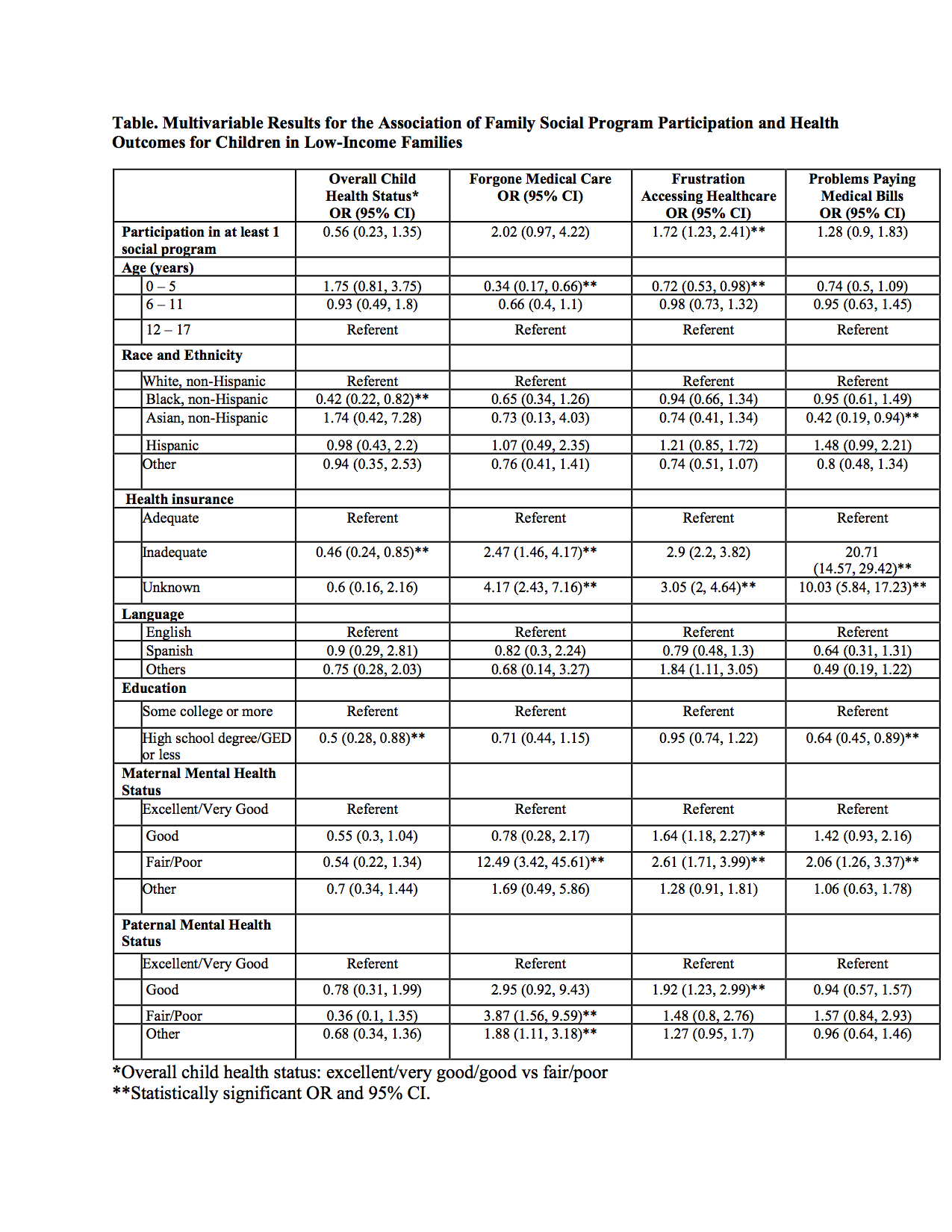Health Services Research
HSR 4: National or Novel
602 - Association of Social Program Participation With Health and Healthcare Access Among Children in Low-Income Families
Publication Number: 602.32

Sonia Taneja, MD M.Sc. (she/her/hers)
Resident Physician
Boston Children's Hospital & Boston Medical Center
Jamaica Plain, Massachusetts, United States
Presenting Author(s)
Background: Increased spending on social programs (e.g. Special Nutrition Assistance Program (SNAP), Women, Infants, and Children (WIC)) is associated with improved child health outcomes. Less is understood about the association of family participation in these programs with pediatric health measures.
Objective: To examine the association between social program participation and parent-reported child health and healthcare access for low-income children.
Design/Methods:
This is a cross-sectional study using the 2020 National Survey of Children’s Health (NSCH) from the Health Resources and Services Administration, including low-income households (< 185% of the Federal Poverty Level) with children < 18 years old (N=7279 survey responses). Study outcomes included child health status (excellent/very good/good vs fair/poor), frustration in accessing healthcare, forgone medical care, and problems paying medical bills. Study exposures included participation in at least 1 of these programs in the past 12 months: SNAP, WIC, government cash assistance, or free/reduced-cost school meals. We performed multivariable logistic regression modelling to examine the association of the exposure on the outcomes, adjusting for demographic and parental factors, reporting weighted odds ratio (OR) estimates and 95% confidence intervals (CI), to account for the complex survey design.
Results: An estimated 27.1 million children were included for analysis. Among study children, 25% of families were not enrolled in any social program. Family participation in at least 1 social program was associated with the family reporting healthcare access frustration (OR 1.72, 95% CI 1.23, 2.41) (Table). It was not associated with child health status, forgone medical care, or problems paying medical bills. There were decreased odds of favorable child health status for Black, non-Hispanic children (OR 0.42, 95% CI 0.22, 0.82), children with inadequate health insurance (OR 0.46, 95% CI 0.24, 0.85), and children whose parents had high school education or less (OR 0.50, 95% CI 0.28, 0.88). Children with inadequate healthcare access or with mothers with poor/fair mental health were more likely to have forgone medical care, problems paying medical bills and frustration in healthcare access (Table).
Conclusion(s): In this study, participation in at least 1 social program was associated with a child’s family reporting frustration in healthcare access but not with overall child health status. Families receiving public benefits may be aided by targeted efforts to facilitate healthcare access for their children.
